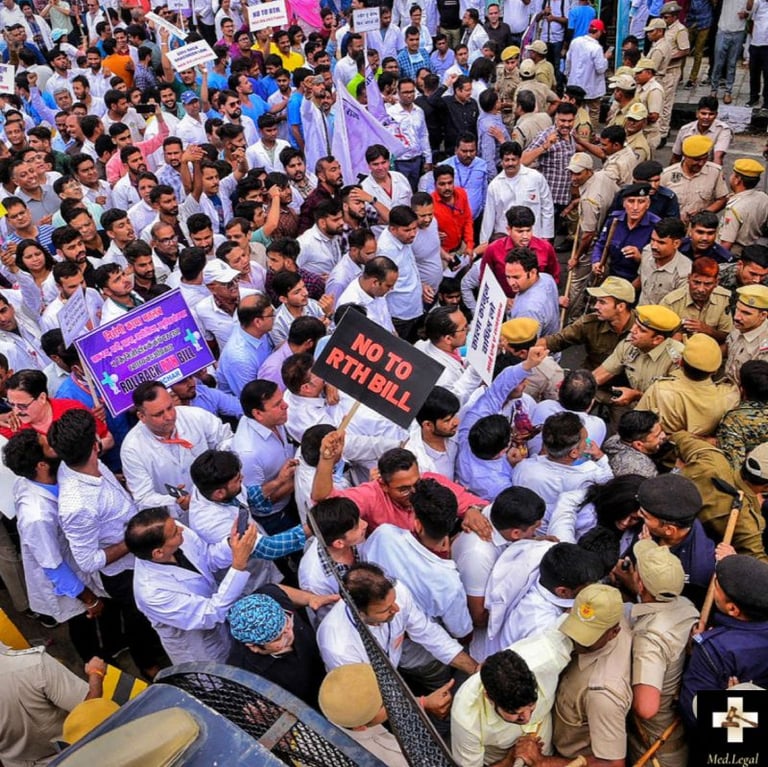Why are Doctors Protesting against the Rajasthan Right to Health Bill? (Part 1)
Dr. Satvik N Pai
7/6/20232 min read


Why are Doctors Protesting against the Rajasthan Right to Health Bill?
(Part 1)
The Rajasthan Right to Health Bill was passed this week, which has been met with widespread protests by medical professionals. Here I’m going to delve a little deeper into why medical professionals are objecting to this bill.
CONTENTION ONE:
Emergency Services.
[1] The Bill mandates that all medical establishments, which includes government and private establishments, provide emergency medical care without the Pre-requirement of fees being paid.
[2] If the patient does not pay for the services provided by the time of discharge, the medical establishment has to approach the government for reimbursement.
[3] This could promote several patients to not pay the fees for the services utilised, as they would be aware that the hospital is not permitted to delay treatment or prevent the patient from leaving the premises after obtaining the services.
[4] It would leave hospitals with the arduous task of having to approach the government for reimbursement of fees. That process is unlikely to be a simple one, as it will require verification of medical records, fees charged and the non-payment of fees. Considering the pace at which State Machinery functions in India, that would amount to atleast a couple of months/years before they are able to receive the reimbursement.
[5] While they wait for this reimbursement from the government, the establishment has to continue to pay salaries, rent and management costs and continue to run a business.
[6] Apart from the delay in payment, there is also no guarantee that the said payment would be fulfilled by the government. They can still reject the payment, or agree to pay only part of the amount.
[7] This clause could also lead patients to flock centres which are known to provide quality medical care. This would lead to a situation where good establishments are the ones that are overburdened with the non-payment of fees issues, which could compromise the quality and sustainability of an institution which should have been promoted/rewarded instead.
[8] While large hospitals would have the man-power to deal with state machinery, small nursing homes, clinics and individual doctors would find it to be too cumbersome a process to undertake by themselves.
[9] The process of obtaining reimbursement would not be cost-effective/ rewarding for the time invested, when it comes to smaller amounts. But if the number of such incidents increased, these small amounts could lead to huge loses.
[10] The process of reimbursement is also not convenient for the government itself. They would have to spend considerable man hours in verification of claims and documents. It could lead to a misuse of tax-payer money.
Like and share this with other medical professionals across the country. If we aren’t working together against this, we may have to work for free.
#doctors #indiandoctors #medicolegal #medlegal #medicallaw #medicalethics #medicalnegligence #righttohealth #doctorsprotest

Guardian Med Legal Consulting
Medicolegal Support for Healthcare Professionals
Follow us
Based in Bangalore. Serving across India.
support@guardianmedlegal.com